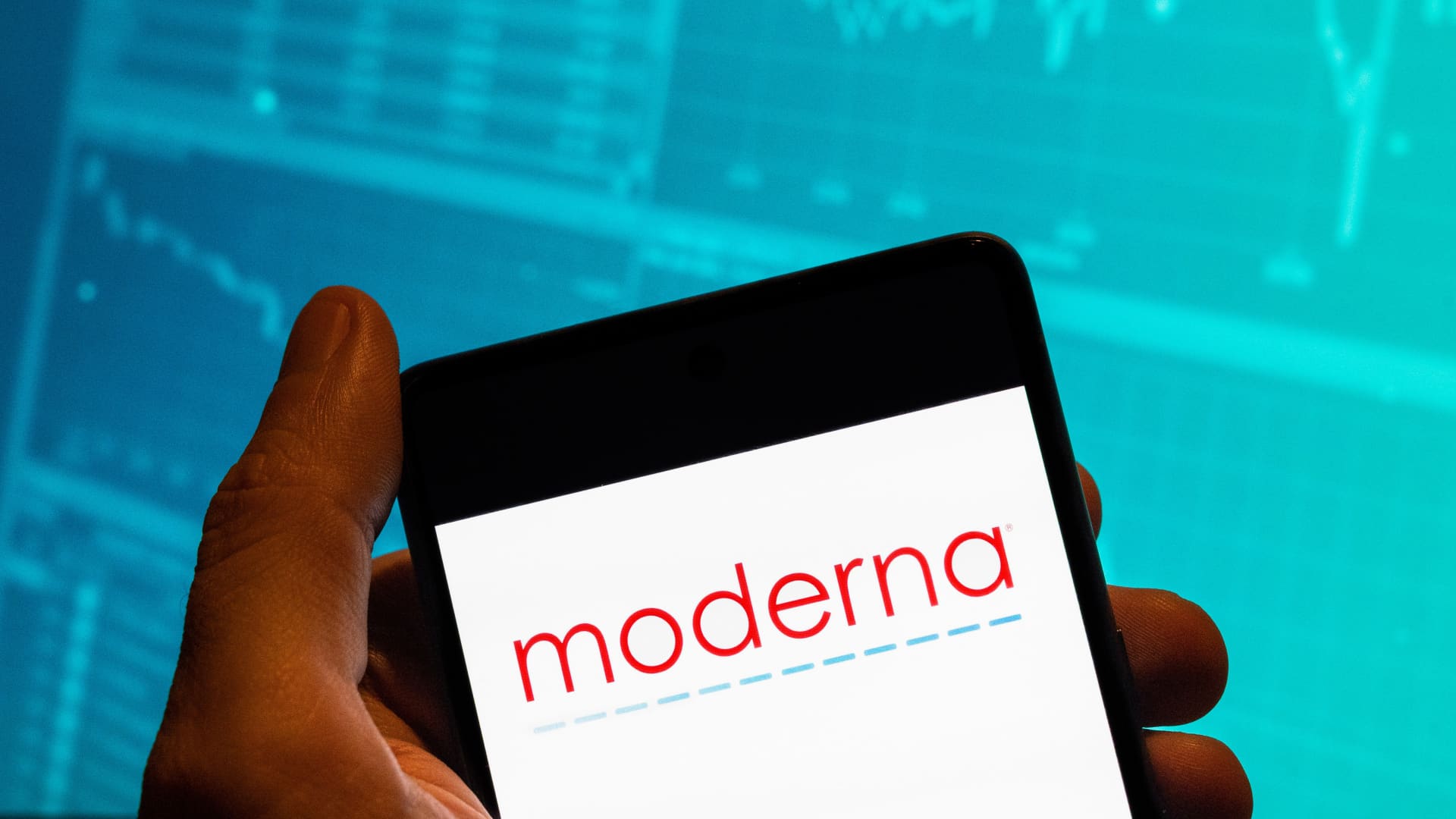Moderna and IBM are teaming up to use generative artificial intelligence and quantum computing to advance mRNA technology, the development at the core of the company’s blockbuster Covid vaccine, the companies announced Thursday.
“We are excited to partner with IBM to develop novel AI models to advance mRNA science, prepare ourselves for the era of quantum computing, and ready our business for these game-changing technologies,” Moderna CEO Stephane Bancel said in a statement.
Moderna shares dipped slightly Thursday, while IBM’s stock was about flat.
The companies said they signed an agreement for Moderna to access IBM’s quantum computing systems. Those systems could help accelerate Moderna’s discovery and creation of new messenger RNA vaccines and therapies, according to Dr. Dario Gil, director of IBM research.
IBM will also provide experts who can help Moderna scientists explore the use of quantum technologies, the companies added. Unlike traditional computers, which store information as either zeroes or ones, quantum computing hinges on quantum physics. That allows those systems to solve problems too complex for today’s computers.
Under the deal, Moderna’s scientists will also have access to IBM’s generative AI model known as MoLFormer. Generative AI describes algorithms that can be used to create new content based on the data they have been trained on.
The companies said Moderna will use IBM’s model to understand “the characteristics of potential mRNA medicines” and design a new class of vaccines and therapies.
The agreement comes as Moderna navigates its post-pandemic boom driven by its mRNA Covid vaccine.
The Cambridge, Massachusetts-based company became a household name for its messenger RNA technology, which teaches human cells to produce a protein that initiates an immune response against a certain disease.
Moderna is trying to harness that technology to target other diseases as the world emerges from the pandemic and demand for blockbuster Covid vaccines and treatments slows.
The company is already working to develop a vaccine targeting respiratory syncytial virus and a shot that can target different types of cancer when combined with Merck’s immunotherapy Keytruda.
The new agreement also comes as IBM ramps up its investment in AI with new partnerships. Earlier this year, the Armonk, New York-based company announced a deal with NASA to help build AI foundation models to advance climate science.
Those efforts fall in line with a recent boom in AI, largely driven by the release of OpenAI’s ChatGPT. The AI-powered chatbot answers questions in clear, concise prose, and immediately caused a sensation after its launch.
ChatGPT kicked off an AI arms race and prompted questions about the full extent of artificial intelligence’s capabilities and risks.
